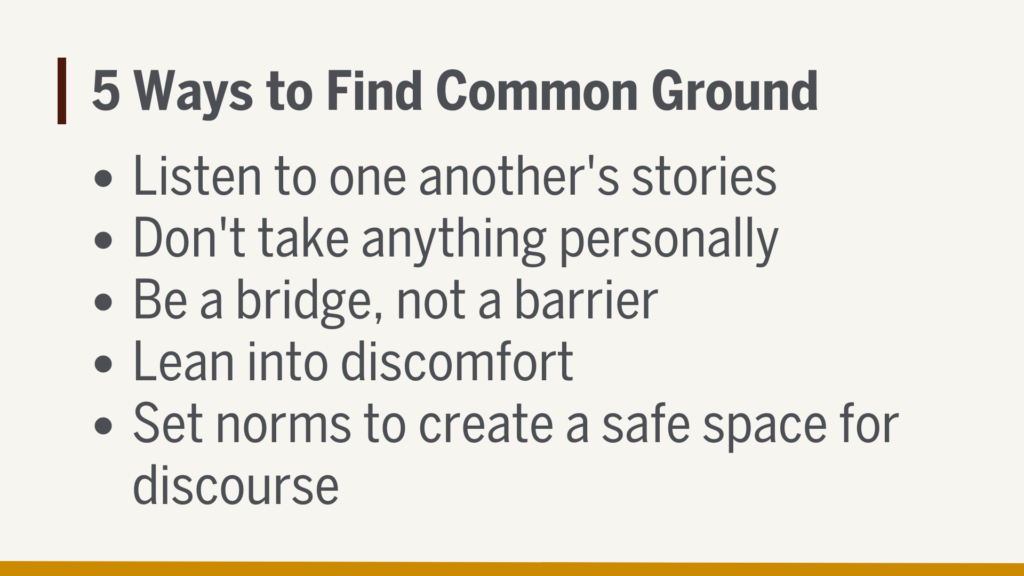Five Ways to Find Common Ground During Difficult Conversations
By Jeff Tran, MHS Home Life Administrator
At Milton Hershey School, students and staff follow four Sacred Values—Mutual Respect, Integrity, Positive Spirit, and Commitment to Mission. These principles guide our community as we navigate interactions with others, especially when we find ourselves in difficult conversations. Throughout my MHS career as a counselor, manager, and now Home Life Administrator, I have incorporated tools when helping students and staff better understand each other.

When they feel equipped and prepared for tough conversations, it is more likely that they will be able to find common ground, leave the conversation having learned from each other, and come to respect another point of view.
When involved in a difficult conversation, implement the following tools for successful and rewarding dialogue.
- Listen to one another and don’t assume anything. Build understanding and trust by taking the time to understand the other person’s perspective.
- Remain objective and don’t take anything personally. While it is tough, do the best you can to leave emotion out of the conversation. One tip is to ask open ended questions. This will invite unprompted answers and make the conversation two-ways.
- Be a bridge for communication, not a barrier. You may not be aware of your hidden biases, so be open to hearing another opinion. Use phrases such as, “Interesting…tell me more about that” and be ready to keep the conversation going.
- Expect discomfort and prepare for it. Taking on topics or conversations that could be controversial or awkward isn’t easy, so accept the situation as a challenge to step outside your comfort zone. Be aware of your body language, as well as that of the person you are having the conversation with. Following verbal and non-verbal cues will help you ensure it doesn’t escalate into a more heated conversation.
- Create a safe space for dialogue by:
- Being present in the moment and conversation. If necessary, ask to put the phones away for a few minutes to eliminate any distractions.
- Encouraging candidness and transparency.
- Taking risks by not holding your perspective back; but also by accepting that another point of view is possible; avoid all or none thinking!
- Using “I” statements versus “you” statements.
- Maintaining respect and avoid jumping right into a defensive response.
- Honoring confidentiality and remaining respectful.

